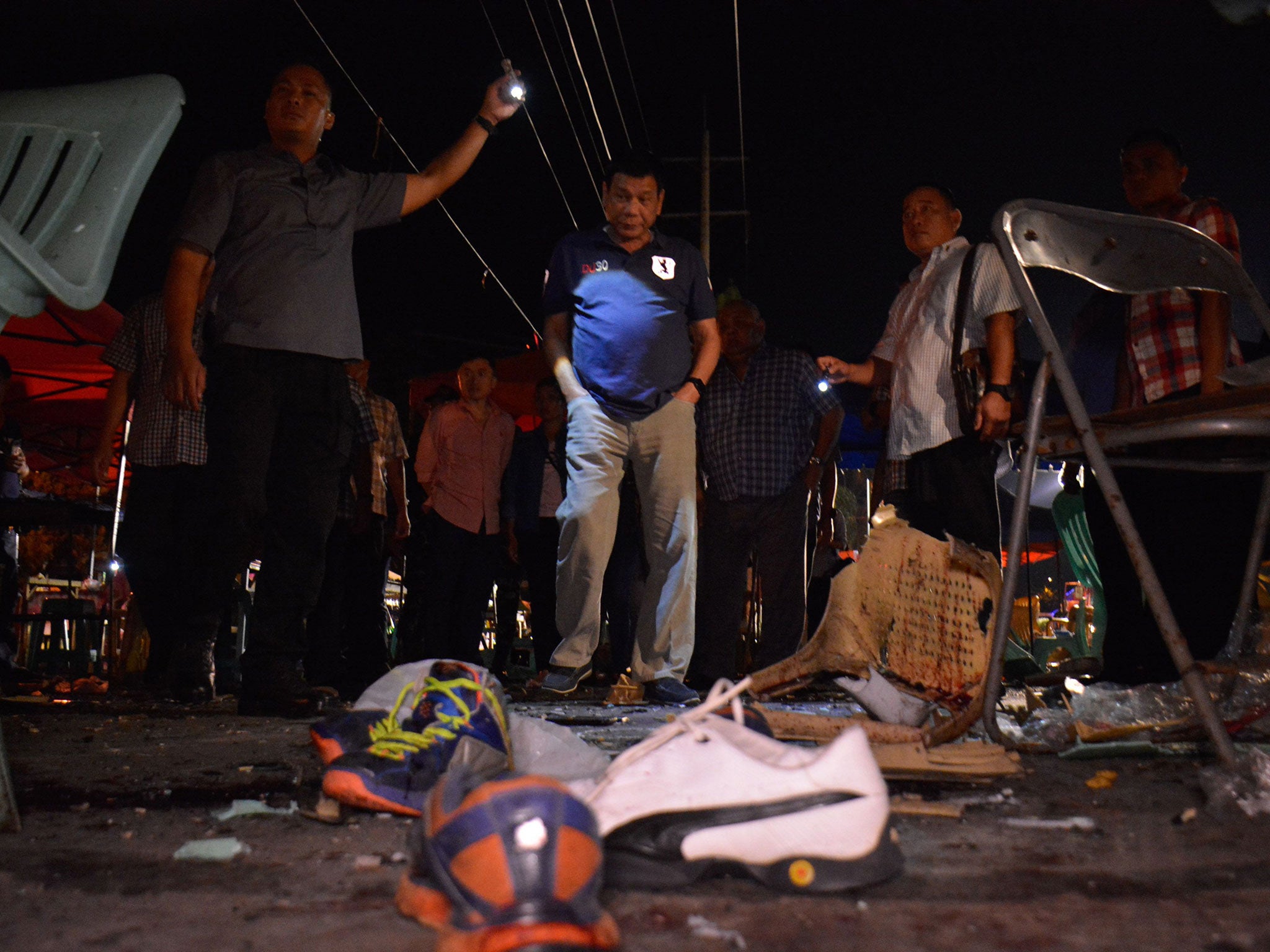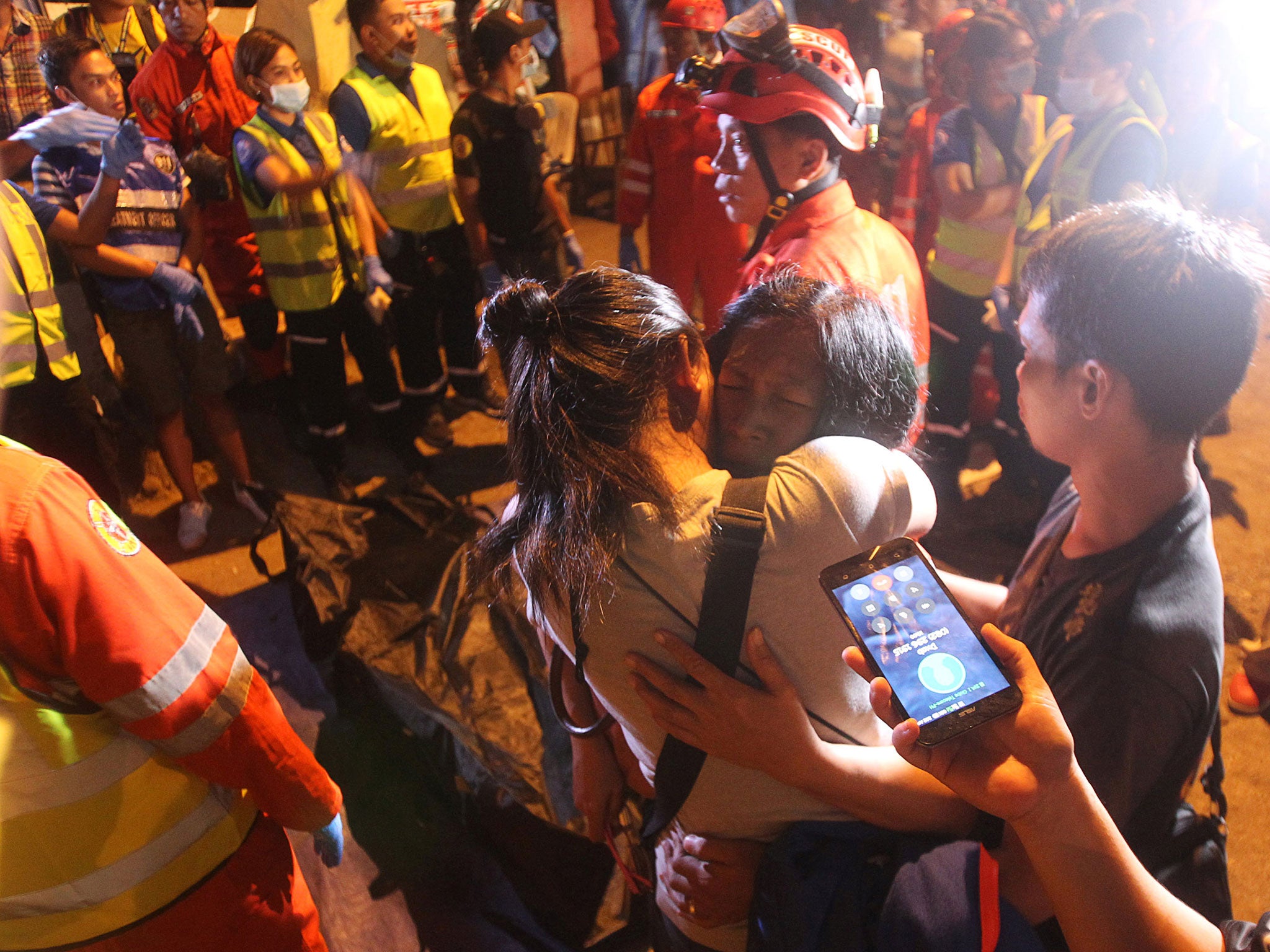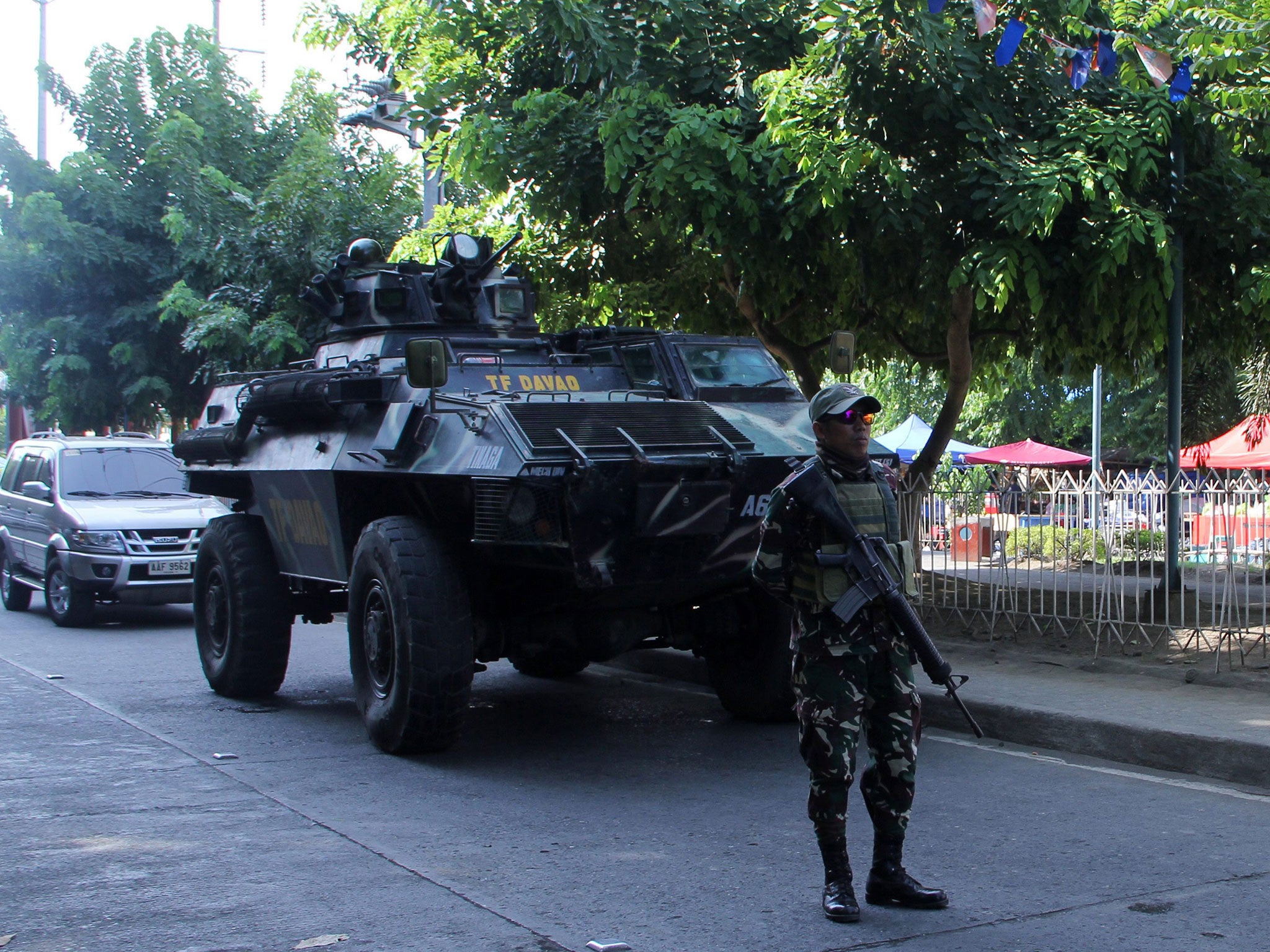Isis affiliate claims responsibility for Davao attack as Philippines President declares 'state of lawlessness'
Blast at bustling market kills at least 14 people as war against Abu Sayyaf militants continues
Your support helps us to tell the story
From reproductive rights to climate change to Big Tech, The Independent is on the ground when the story is developing. Whether it's investigating the financials of Elon Musk's pro-Trump PAC or producing our latest documentary, 'The A Word', which shines a light on the American women fighting for reproductive rights, we know how important it is to parse out the facts from the messaging.
At such a critical moment in US history, we need reporters on the ground. Your donation allows us to keep sending journalists to speak to both sides of the story.
The Independent is trusted by Americans across the entire political spectrum. And unlike many other quality news outlets, we choose not to lock Americans out of our reporting and analysis with paywalls. We believe quality journalism should be available to everyone, paid for by those who can afford it.
Your support makes all the difference.Isis’ affiliate in the Philippines has claimed responsibility for a bombing that killed at least 14 people and wounded 70 more at a bustling market.
President Rodrigo Duterte declared a nationwide “state of lawlessness” in the wake of the terror attack targeting his hometown of Davao, next to a hotel he frequently visits.
Visiting the scene of the blast on Friday night, he said the army and police would be deployed across the country but claimed the measures did not amount to martial law.

“These are extraordinary times and I'm authorised to allow the security forces of this country to do searches,” Mr Duterte added, asking the public to cooperate and be vigilant.
“We're trying to cope up with a crisis now. There is a crisis in this country involving drugs, extrajudicial killings and there seems to be an environment of lawless violence.”
The explosion hit at around 10.30pm local time (3.30pm BST), sending screaming shoppers running for their lives from the scene littered bodies, shrapnel and the remnants of destroyed market stalls.
Armando Morales, 50, said the blast threw him off his chair, adding the blast had an upward force and emitted smoke but no fireball that could have killed more people.
He saw at least 10 people lying bloodied on the ground, mostly masseurs and their customers.
“I helped tie their wounds to prevent blood loss,” he told the Associated Press. “They were pale like dead already.”
Adrian Abilanosa, another witness, told the AFP news agency: “The force just hurled me. I practically flew in the air.”

Officials believe an improvised explosive device was used, possibly constructed using a mortar round.
The attack came as the Philippines’ armed forces continue a military offensive against Isis-affiliated Abu Sayyaf militants in the southern Sulu province, which intensified last week after the militants beheaded a kidnapped villager.
The jihadists had threatened to launch an attack after the military said 30 of their gunmen were killed in the weeklong offensive
Delfin Lorenzana, the defence secretary, said the group was attempting to gain revenge for heavy losses.
“We have predicted this - and warned our troops accordingly - but the enemy is adept at using the democratic space granted by our constitution to move around freely and unimpeded to sow terror,” he added.
An Abu Sayyaf spokesman, Abu Rami, claimed responsibility for the blast near the Jesuit-run Ateneo de Davao University, but Mr Duterte said investigators were looking at the possible involvement of drug syndicates.
According to police figures released on Thursday, more than 1,000 people have been killed by vigilantes and another 900 more in police operations over the past two months.
Mr Duterte was elected President in June, launching a campaign he claimed would kill so many drug users and dealers that “fish will grow fat” from bodies dumped in Manila bay.

Police immediately set up more checkpoints in key roads leading into Davao on Friday, about 600 miles south of Manila, where the police force went on full alert at midnight.
With an estimated 400 members, Abu Sayyaf’s jihadists have been waging an insurgency in the Philippines since the early 1990s with the aim of creating a regional Islamic state.
It funds itself through kidnappings and ransoms and has carried out numerous bombings, ambushes, public beheadings and assassinations, as well as killing several foreign hostages.
In July 2014, leader Isnilon Hapilon – designated a most-wanted terrorist by the FBI - pledged allegiance to Isis and its “caliph” Abu Bakr al-Baghdadi.
The Philippines military says there has been no evidence of a direct collaboration between Isis forces in the Middle East and Abu Sayyaf attacks.
The Foreign and Commonwealth Office warns against travel to southern provinces where the group is most active – including Mindanao where Davao is located – and says a high threat from terrorism exists throughout the country.
Barack Obama is expected to offer his personal condolences to Mr Duterte when the two leaders meet at the Association of Southeast Asian Nations summit in Laos next week
Subscribe to Independent Premium to bookmark this article
Want to bookmark your favourite articles and stories to read or reference later? Start your Independent Premium subscription today.

Join our commenting forum
Join thought-provoking conversations, follow other Independent readers and see their replies
Comments